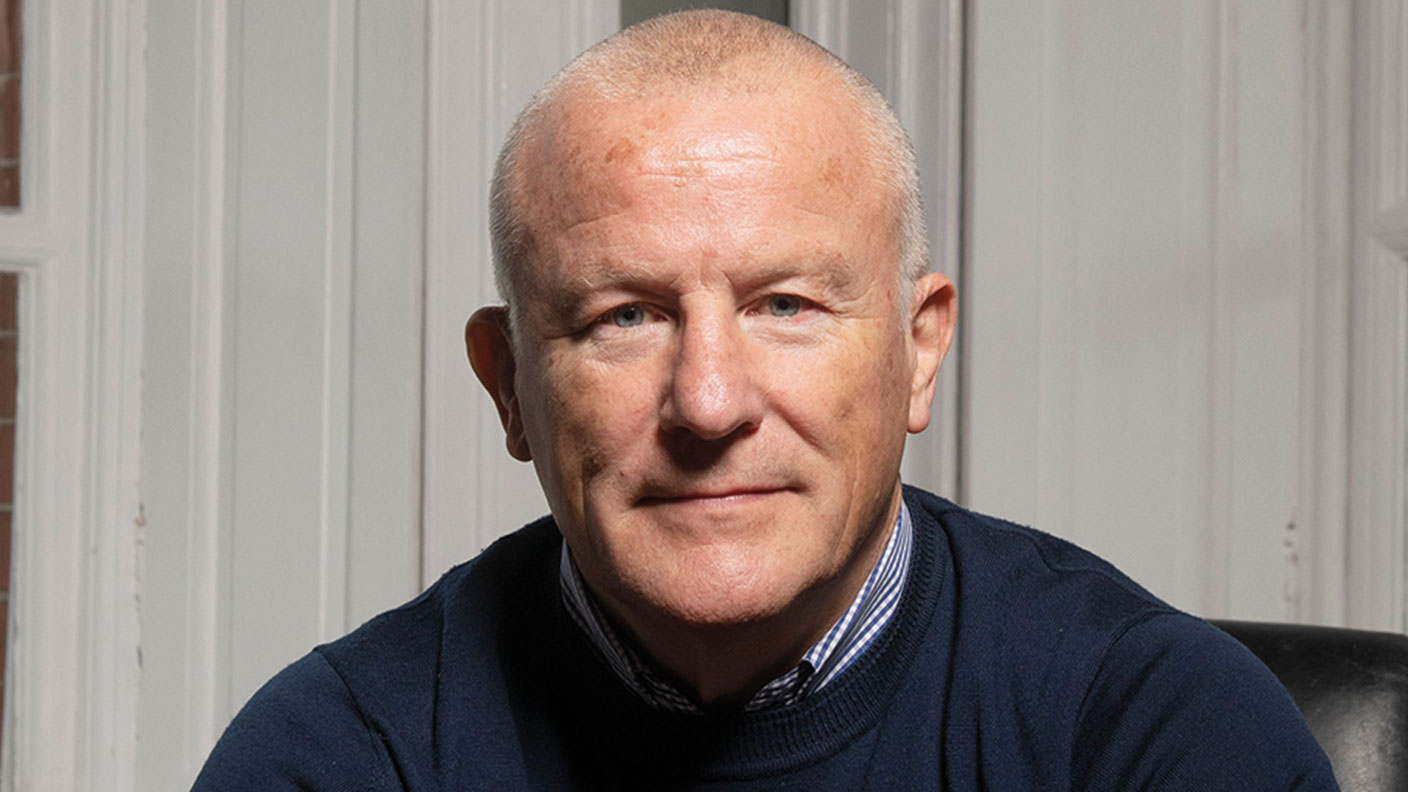Woodford's fund stays shut – but it is time to buy Patient Capital?
John Stepek examines Neil Woodford’s progress in fixing his Equity Income Fund, and asks if it’s worth buying the Patient Capital Trust instead – while running his eye over an alternative trust for your portfolio.

Get the latest financial news, insights and expert analysis from our award-winning MoneyWeek team, to help you understand what really matters when it comes to your finances.
You are now subscribed
Your newsletter sign-up was successful
Want to add more newsletters?

Twice daily
MoneyWeek
Get the latest financial news, insights and expert analysis from our award-winning MoneyWeek team, to help you understand what really matters when it comes to your finances.

Four times a week
Look After My Bills
Sign up to our free money-saving newsletter, filled with the latest news and expert advice to help you find the best tips and deals for managing your bills. Start saving today!

Quick reminder before I get started this morning tickets for the MoneyWeek Wealth Summit are now available. It's an all-day event, we've got huge names already booked in (including James Anderson of Scottish Mortgage Trust fame) and others we're lining up, and I want to see you there. Get your tickets here now.
Back to today, and we have an update on the biggest story in the world of funds just over four weeks ago, on Monday 3 June, Neil Woodford dropped the portcullis on the Woodford Equity Income fund, locking in investors' money as he struggled to contain a run on his underperforming fund.
At the time, we were told the suspension would last for at least 28 days, but that it would probably be a while longer than that.
MoneyWeek
Subscribe to MoneyWeek today and get your first six magazine issues absolutely FREE

Sign up to Money Morning
Don't miss the latest investment and personal finances news, market analysis, plus money-saving tips with our free twice-daily newsletter
Don't miss the latest investment and personal finances news, market analysis, plus money-saving tips with our free twice-daily newsletter
Yesterday, Woodford gave us an update.
Long story short it's still shut...
How Woodford plans to fix his fund
Neil Woodford (or "poor Neil Woodford", as we call him at MoneyWeek) posted a video to his website yesterday evening, discussing the ongoing closure of his Woodford Equity Income fund.
The purpose of the closure is to give Woodford the breathing space to sell all the illiquid stuff in his portfolio (which, before the closure, amounted to as much as 85%, according to index provider MSCI remember that listed stocks can be illiquid too, especially if you own big chunks of them).
He wants to reinvest that money in FTSE 100 and FTSE 250 stocks. Clearly, his goal is to restructure the portfolio in such a way that it both looks a lot like his old success stories at Invesco, and also reassures people that they can definitely get at their money when they want.
If he re-opens the fund on that basis one where it's almost 100% liquid, and he's promising a return to form then he presumably reckons that there's a chance that not every single investor will pull their money out.
I'm not sure I rate his odds. But hope does spring eternal in the breast of the investor, so perhaps I'm underestimating the willingness of people to grant second chances.
Oh, by the way, in his carefully curated Q&A session, he didn't even mention the fees. So if your money is locked up in the fund, you're still paying him to liquify the portfolio. I think this is a cheek.
You can argue and many do, including Woodford Investment Management that he's still managing the portfolio. My view is that he's managing it out of a hole that he should never have got it into in the first place. It's as if the mechanic towing your car to the local garage managed to crash into a ditch on the way there, then sent you the bill for the time spent getting out of it.
So what's Woodford been up to in this time? He has sold Russian-focused real estate company Raven Property. He has also slashed his holding in troubled motoring group AA by almost half he now owns nearly 7% as opposed to 12%. This is one reason why the AA's share price has now fallen to not far off an all-time low.
None of these sales were made at record highs, so I'm guessing that Woodford has lost money on them. He did however manage to sell his stake in car sales group BCA Marketplace at what was presumably a half-decent price, helped out by a bid from private equity group TDR Capital.
In all, Woodford has managed to sell about £460m of holdings in his fund, according to Citywire. Given that he has around £3.7bn in assets under management, and has to give around £250m to Kent County Council alone, he's going to need to have a lot more cash than that before he opens the gates again.
And so far he's sold the easier stuff. Woodford Investment Management is appointing specialists to help them flog the unlisted stuff but if you're in the fund, I'd be prepared to wait a while to get access to your money again.
Is it time to invest in Patient Capital?
What does all of this mean for investors? Clearly, if your money is sitting with Woodford, then you just have to wait.
What about other, related investments? Is Woodford Patient Capital Trust (LSE: WPCT) a "buy" yet? The group is trading at an apparent discount to net asset value (NAV the value of the underlying portfolio) of around 34%, based on yesterday's published NAV per share of 82.38p.
The good news is that the company is planning to de-risk somewhat by cutting its leverage, from the current level of about 17% to below 10% over the next six months, raising the money by selling stocks. At that point, according to the board, the trust might look to buy back its own shares in order to close the discount.
My own feeling, though, is that we need to see more drastic change before the trust reaches its nadir. Woodford Equity Income still owns a big chunk of the trust (nearly 10%), which means there's a big risk that this holding could be liquidated before the fund is reopened. Clients of Hargreaves Lansdown also hold a huge chunk nearly a quarter of the share capital according to Investment Week.
Also, the NAV is a lot less reliable than it would be for a trust with a more liquid portfolio. At the end of May, just before the Woodford fund was shuttered, the NAV per share was 89.61p. So the NAV has fallen by about 8% in a month. I'm not keen to bet on it having seen the bottom yet.
So, short answer, I'm not a buyer of Patient Capital yet. I'd have to agree with Patrick Thomas of Canaccord Genuity, who told Investment Week: "It is one you are buying purely on the expectation that there will be a catalyst for performance to turn around and the enormous discount to widen. It is hard to fathom what that catalyst might be."
Apart from anything else, there are many other investment trusts out there that look more promising. For example, I met Graham Bird, manager of Gresham House Strategic (Aim: GHS), the other day. Gresham has done very well in the last year or so, with its discount narrowing sharply as investors have woken up to its impressive performance.
The trust is highly concentrated it only holds around 15 companies, and it takes what Bird describes as a "strategic public equity" approach. In effect, that involves finding small British and European companies that look undervalued, and taking significant stakes in them in order to help them to realise that value. It's a highly engaged, highly active approach the sort of thing that active managers should be doing to earn their living now that passive can do most of the run-of-the-mill stuff.
Don't get me wrong relative to its history, and as a result of its recent strong performance, Gresham is not cheap today (it's on a discount of around 13% but it has more frequently traded on a discount of more than 20%). But unlike Patient Capital, it's pretty clear that this is a team with a coherent strategy, not to mention one that is not currently under any short-term pressure or in the media spotlight.
Yes, you might want to put it on your research list right now and keep an eye out for a future buying opportunity but I'd certainly be happier risking my money on that sort of trust rather than taking a wild punt on Patient Capital.
Get the latest financial news, insights and expert analysis from our award-winning MoneyWeek team, to help you understand what really matters when it comes to your finances.

-
 Can mining stocks deliver golden gains?
Can mining stocks deliver golden gains?With gold and silver prices having outperformed the stock markets last year, mining stocks can be an effective, if volatile, means of gaining exposure
-
 8 ways the ‘sandwich generation’ can protect wealth
8 ways the ‘sandwich generation’ can protect wealthPeople squeezed between caring for ageing parents and adult children or younger grandchildren – known as the ‘sandwich generation’ – are at risk of neglecting their own financial planning. Here’s how to protect yourself and your loved ones’ wealth.
-
 Neil Woodford’s back – but has he really learned anything?
Neil Woodford’s back – but has he really learned anything?Opinion Disgraced fund manager Neil Woodford is planning a comeback. But he doesn’t seem to have learned much from his many mistakes. So why would anyone invest with him now?
-
 Neil Woodford’s back – but sometimes sorry isn’t enough
Neil Woodford’s back – but sometimes sorry isn’t enoughAdvice Neil Woodford’s funds blew up in 2019. Now he is on the comeback trail. But his apologies are unconvincing.
-
 Woodford investor? Your first payment is coming soon
Woodford investor? Your first payment is coming soonNews Private investors left stranded by the collapse of the Woodford Equity Income fund will soon be getting at least some of their money back. But they will have to wait a while longer to see how much more – if any – they will receive.
-
 Neil Woodford continues to cast a shadow over his successor at Invesco
Neil Woodford continues to cast a shadow over his successor at InvescoFeatures Mark Barnett, former star manager Neil Woodford’s successor at Invesco, has applied the same formula, and is struggling.
-
 Is it time to buy Patient Capital Trust?
Is it time to buy Patient Capital Trust?Features Neil Woodford’s Patient Capital Trust has been taken over by asset manager Schroders. The share price has surged - but should you buy in? John Stepek looks at the trust’s prospects.
-
 Neil Woodford: no silver lining for his investors
Neil Woodford: no silver lining for his investorsEditor's letter Neil Woodford made every mistake it is possible to make as a money manager. And his investors have been stiffed. But however wrong it all went, Woodford never stopped taking the fees.
-
 Woodford’s empire collapses – what happens to his investors now?
Woodford’s empire collapses – what happens to his investors now?Features With Neil Woodford getting his marching orders and his funds being shut down, John Stepek explains what it means for his former empire, and for those with money locked in.
-
 The fall of the house of Woodford – and what it means for your money
The fall of the house of Woodford – and what it means for your moneyFeatures Neil Woodford has been fired from his Equity Income fund, which is now being wound up. John Stepek looks at how he got into this mess, and what it means for investors.